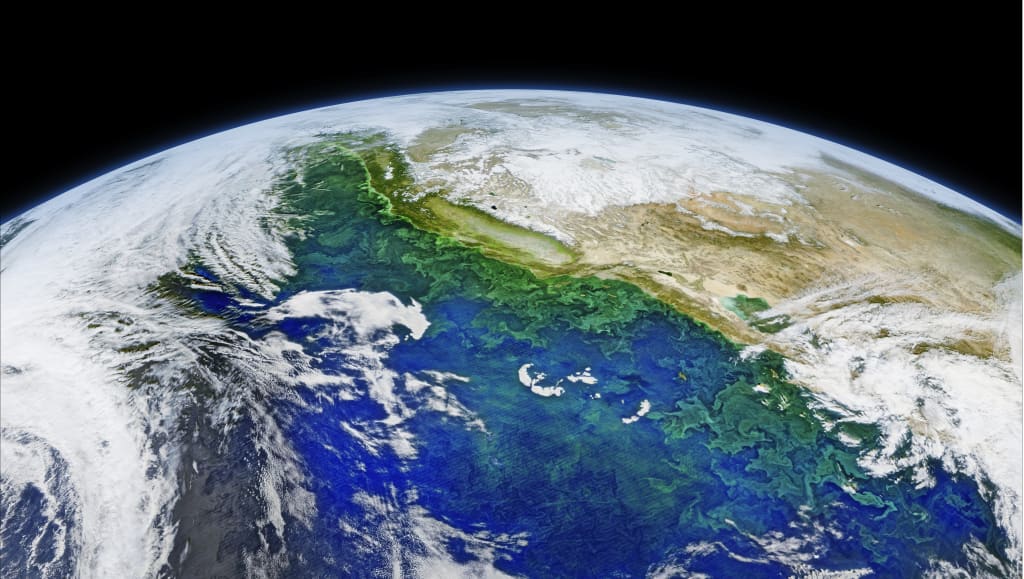The Gulf Stream has slowed. What Happened If It Stopped?
One of the planet's major climate tipping points, the Gulf Stream, a component of the Atlantic Meridional Overturning Circulation (AMOC), has been slowing for some time.

In one study, sediment, temperature, and coral population records were used to infer how the Atlantic Meridional Overturning Circulation (AMOC) has changed through time. Proxy indications revealed that the AMOC saw an "unprecedented" collapse in the 20th century, which intensified in the 1960s, according to the study, which was published in Nature Geoscience. It fell once more starting in the middle of the 2000s after a brief comeback in the 1990s.
The AMOC is currently at its lowest condition in more than 1,000 years, according to the team's report. "There is evidence that the AMOC is slowing down in response to anthropogenic global warming, as predicted by climate models," it stated. What would happen then if it stopped? North West Europe receives warm water from the AMOC. In its absence, Europe becomes much colder. One study that examined how food production would change beyond this "climate tipping point" simulated the disappearance of the AMOC between 2030 and 2050. In this case, Scotland would experience the most cooling, with temperatures falling by an average of 3.4° C (38° F) throughout the UK.
Although climate experts are keeping an eye on the Gulf Stream, they have projected that its closure will have negative effects on the Asian monsoon, the Amazon Rainforest, and the east coast of North America, among other things.
The AMOC may not be as vulnerable to Arctic temperature increases as previously believed, according to new research. In the deeper layers of the ocean, colder water is returned to the north while warmer water is taken north by the AMOC. According to the notion, when the ice sheets melted, the flood of freshwater would obstruct the water cycle. However, the study indicated that it was preferable to discard this supposition after modeling the climate during the last 10,000 years.
According to Feng He, an associate scientist at the Center for Climatic Research at the University of Wisconsin-Madison, "without the freshwater coming in making the AMOC slow down in the model, we get a simulation with a much better, lasting agreement with the temperature data from the climate record," Forbes reported in 2022. The crucial finding is that both the data and the model indicate that the AMOC is less susceptible to freshwater forcing than previously believed.
The AMOC weakens in this scenario but continues to operate. He continued to Forbes, "We propose that any simulated AMOC shifts from freshwater forcing should be considered with care until this difficulty is resolved.”We are unsure of the cause of the AMOC's earlier closure. Yet we are positive that something changed. And it could alter once more.
The Atlantic Meridional Overturning Circulation (AMOC), a worldwide network of ocean currents, includes the Gulf Stream as a key component. It assists in controlling climatic patterns and distributing heat. This circulation would be disturbed by a slowing or cessation of the Gulf Stream, which would alter local and worldwide climate patterns. While other regions could suffer changing precipitation patterns or more intense weather occurrences, certain regions might experience cooling.
Western Europe's temperatures are kept more comfortable by the Gulf Stream, which transports warm water from the tropics. Temperatures in the area might significantly drop if it were to slow down or stop. Ecosystems, agriculture, and human activities that depend on milder climates may be disrupted by this cooling impact. The Gulf Stream is a factor in sea level changes along the eastern U.S. coast. These trends might be changed by a slowing or stopping of the Gulf Stream, resulting in regional variances in sea level rise. In certain places, the pace of sea level rise may increase, while in other places it may slow down.
About the Creator
Najmoos Sakib
Welcome to my writing sanctuary
I'm an article writer who enjoys telling compelling stories, sharing knowledge, and starting significant dialogues. Join me as we dig into the enormous reaches of human experience and the artistry of words.






Comments
There are no comments for this story
Be the first to respond and start the conversation.